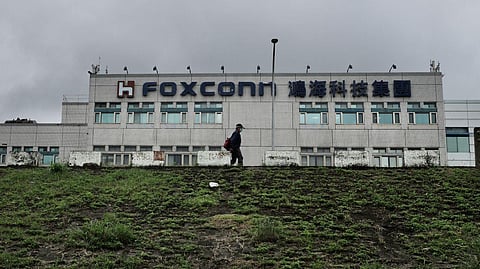

CHENNAI: Foxconn Technology Group, the Taiwanese contract manufacturer best known for assembling Apple’s iPhones, has recently recalled several hundred Chinese engineers and technicians from its operations in India. This development marks a significant challenge for Apple’s strategic shift to diversify its production base outside of China, especially as it prepares to ramp up manufacturing of the upcoming iPhone 17.
According to a Bloomberg report, more than 300 Chinese staff have already exited India, and mostly Taiwanese support personnel remain at Foxconn's Indian sites. While neither Apple nor Foxconn has publicly commented, the recall began quietly about two months ago and is reportedly linked to Beijing’s growing restrictions on the transfer of manufacturing know-how and technology to other countries, especially India and Southeast Asia. Chinese authorities have informally urged domestic regulatory bodies to discourage the export of advanced equipment and high-skilled labor in an effort to prevent foreign rivals from becoming viable alternatives to China’s manufacturing dominance.
This move comes at a particularly sensitive time for Apple. India has rapidly gained ground in Apple’s global supply chain, now accounting for nearly 20 percent of iPhone production. Foxconn has played a central role in building up this capability by deploying experienced engineers from China to train Indian staff and help set up local production processes. Their sudden withdrawal is expected to slow the pace of workforce training and reduce the speed of technology transfer, which in turn could raise operational costs and reduce assembly line efficiency. While the production quality is not expected to suffer in the short term due to established procedures and support from Taiwan-based staff, there is a real risk that efficiency and ramp-up timelines may be impacted, particularly for the iPhone 17.
Indian government sources cited by Bloomberg say they were informed of the move and are not yet observing major disruptions in production. However, analysts note that the real impact may surface during the critical pre-launch months for new iPhone models when engineering precision and line-speed become vital.
Apple has previously emphasised that its preference for China as a manufacturing base goes beyond labor costs, citing the high level of skill and production culture ingrained in Chinese workers. The current geopolitical climate, however, is forcing a recalibration. As tensions between the United States and China escalate — including threats of new tariffs under Donald Trump’s potential return to the White House — India and countries like Vietnam have been making a concerted push to attract companies looking to diversify supply chains. India in particular has benefited from this shift, securing large investments from Apple’s suppliers including Foxconn, Pegatron, and Wistron (now Tata Electronics).
Nonetheless, the recall of Chinese personnel introduces new uncertainty. Foxconn has attempted to fill the gap by relying more heavily on staff from Taiwan, and some analysts argue that this transition had already been anticipated as part of a long-term localisation strategy. Others, however, point out that the speed and effectiveness of workforce development in India are critical to sustaining Apple’s production goals, especially given its aim to manufacture the majority of iPhones for the US market in India by 2026.
Despite the setback, Foxconn continues to invest in India. It recently announced plans to build a new manufacturing plant near Bengaluru and is also pursuing semiconductor partnerships, signaling a long-term commitment to the region. However, the loss of Chinese expertise, combined with rising geopolitical friction and growing Chinese protectionism, may slow Apple's plans in the short term.
Going forward, both Foxconn and Apple will need to adjust by accelerating local workforce development, reducing dependence on imported Chinese machinery, and strengthening diplomatic ties to manage trade uncertainty. For India, this is a wake-up call to invest more aggressively in building a self-sufficient electronics ecosystem. While the full ramifications of the Chinese worker recall are still unfolding, it highlights the fragility of international supply chains and the strategic importance of domestic capabilities in an era of economic nationalism.